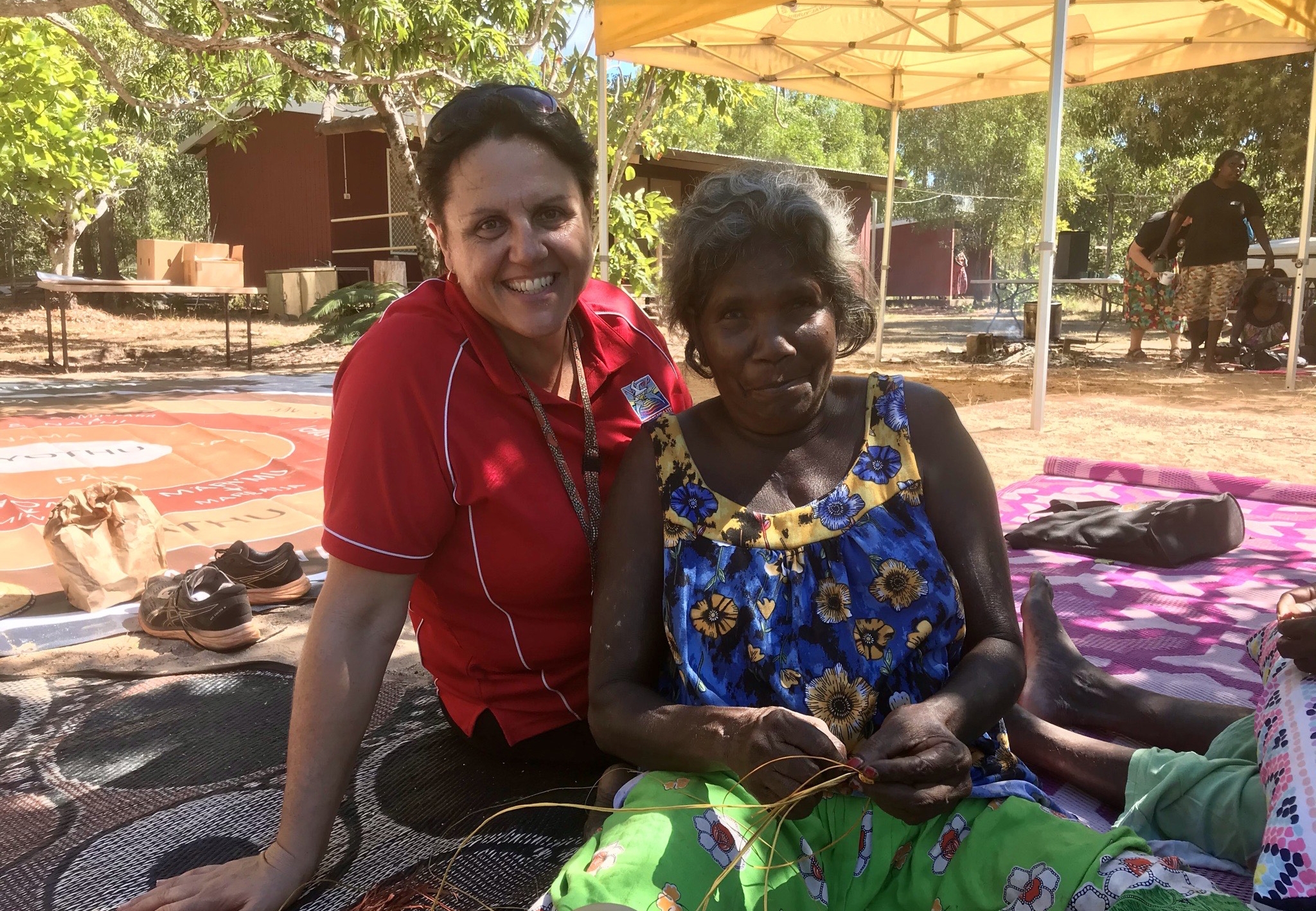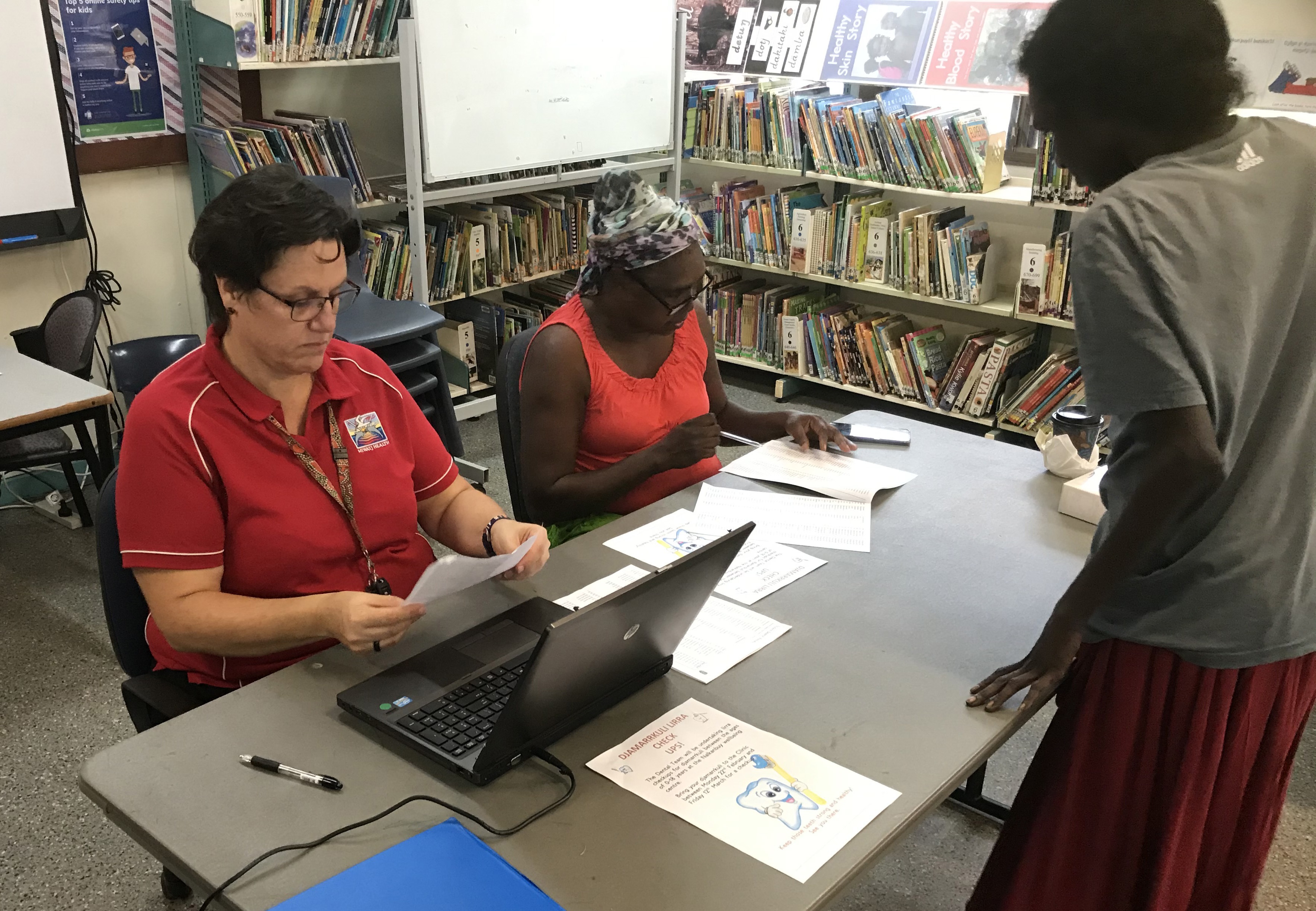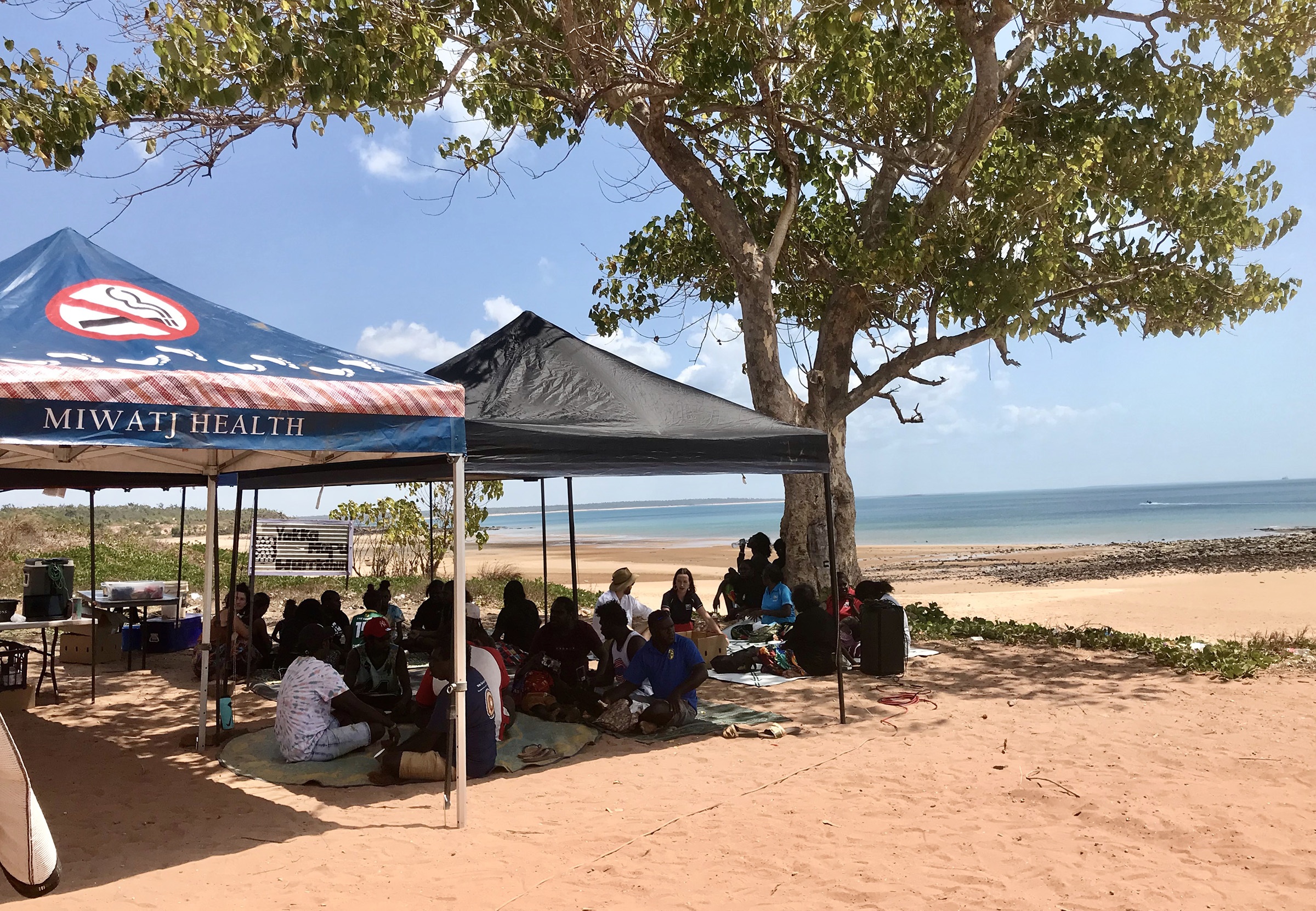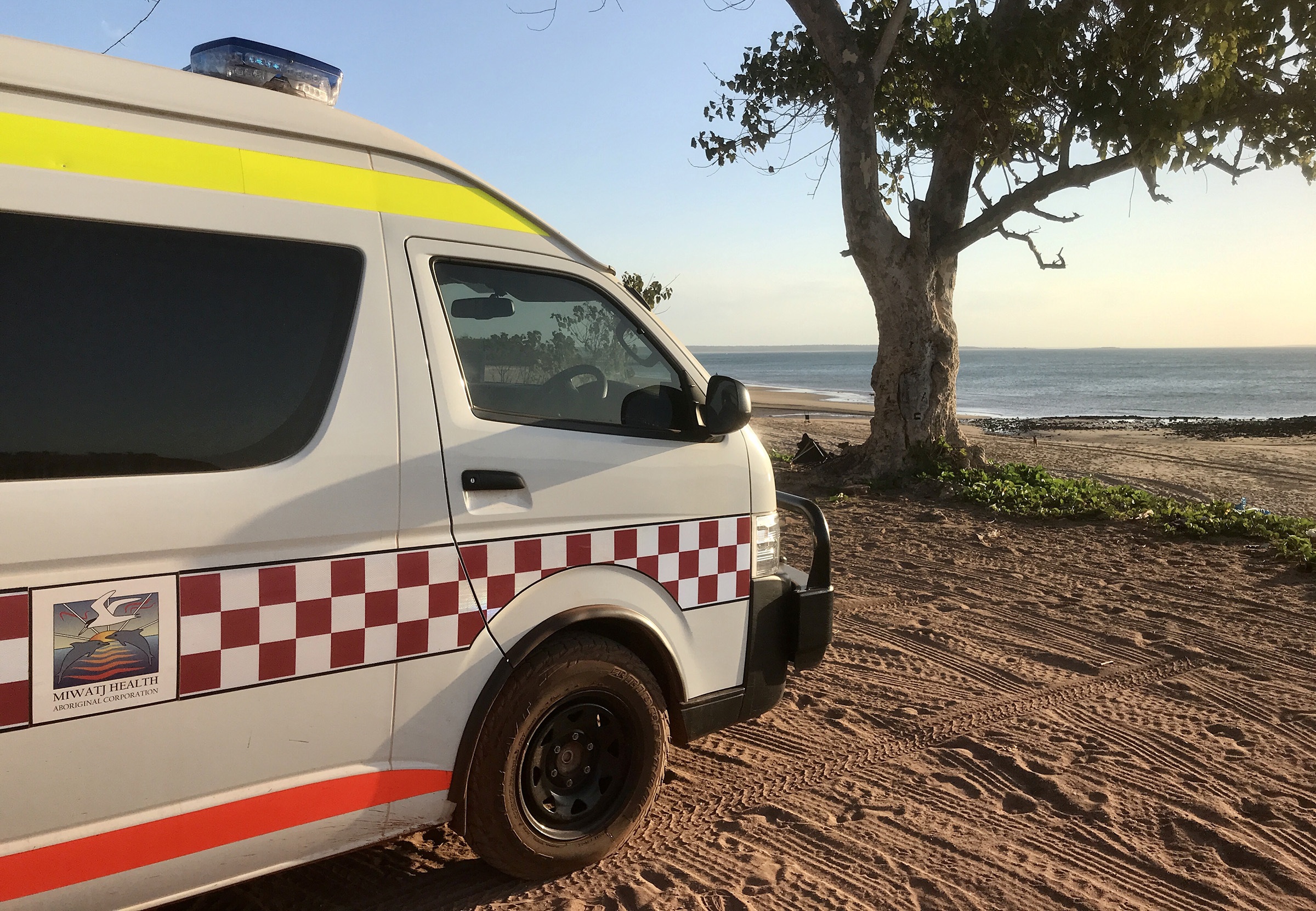This site may not work properly using older versions of Edge and Internet Explorer. You should upgrade your browser to the latest Chrome, Firefox, Edge, Safari, or any other modern browser of your choice. Click here for more information.
Your Stories
This is where we tell your stories, cover topical issues and promote meaningful initiatives.
Kellie Kerin: Upfront about Trauma, Turnover & Culture Shock
Short-lived attention to workplace safety for nurses and midwives in remote settings is nothing new. If RN Kellie Kerin, the NT Indigenous representative on the CRANAplus Nursing and Midwifery Roundtable, has anything to do with it, State and Federal authorities, health services and nursing agencies will finally make meaningful, lasting changes.
“Even before the pandemic, safety issues were recognised as a most pressing and urgent priority facing remote health,” says Kellie.
“Health workers face unacceptable workloads, chronic lack of resources and inadequate preparation for ‘all things remote’, including culture shock.
Now, more than ever, agencies and health services are so desperate, they are sending out people who are, at times, totally outside their comfort zone.
“[That] can set staff up to fail, and so the staff don’t hang around. High turnover is not good for the Health Service, communities; not good for the nurses who can’t stay, not good for those who do stay, and not good for the agencies,” says Kellie.
Kellie, a nurse for 26 years, has seen this pattern repeat itself. She came full circle over an eight-year period by moving from metro to regional to rural quite quickly, and then onto remote. In the same speedy fashion, she then reversed those steps to move to Brisbane to undertake further study.
“I was young, enthusiastic and full of adventure, seeking that buzz [of] adrenaline when I started preparing to go remote in 1997,” she says.
“The day before I left for my R&R experience, my Mum discovered the family she never knew of and I discovered my own Indigenous heritage.
“I hadn’t been raised in the culture, and in those first five years working remote, I learned how misinformed, uneducated and naïve I was. I wasn’t aware just how much until I embraced my own identity.”
Kellie went on to gain a Diploma in Health Science (Holistic Counselling) to improve her communication skills, worked through her own lived experience of PTSD, became a Facilitator in the Applied Suicide Intervention Skills Training (ASIST) and obtained a Certificate IV in Training and Assessment. She worked in mental health for eight years, in areas including suicide prevention, clinical supervision, patient safety and the prison system.
Kellie’s current job with the Aboriginal Medical Service Alliance NT is in the role of clinical COVID-19 advisor, and it covers the Top End including the Big Rivers and East Arnhem regions.
“I put my hand up to invest time on the CRANAplus Roundtable because of my passion to share my knowledge on psycho-social aspects, emotional wellbeing and the trauma people are exposed to – whether it’s vicarious or primary – when they go into remote locations,” she says.
“My passion is to raise awareness, to highlight that going remote is going to be a life-changing decision,” says Kellie. “There are going to be extreme highs and extreme lows.
“A lot of conversation around safety issues and the fact that remote health services are grossly under-resourced continually falls on deaf ears,” says Kellie. “It’s time it was made a priority.
“There is a high burnout rate, a high attrition rate, for many well-known factors, historical and on-going.
“The trouble is remote health tends to be reactive. There are so many complex and overlapping demands. But aiming to keep staff happy, healthy and content, that should be a priority.”
The Roundtable in February explored reasons and possible actions to address safety issues, including direct advocacy in the political arena in the lead-up to expected elections this year.
“We need to prepare people better, be frank and upfront about what they will be dealing with,” Kellie says. “It’s about being aware of the skills that will be needed, and the day-to-day situations that arise.
“A lot of people don’t realise… how comprehensive the primary health care model is in remote, the advanced clinical skills required, the extra qualifications and experience you need. You can have the best intensive care or emergency nurse, but when you’re out there, you face less equipment, less resources, maybe two people to assist if you’re lucky – not 10 people who respond at the push of a button on the ward wall.”
The situation forces some people to leave because they feel unsupported, as does the living standards and substandard accommodation for which they may not have been prepared.
The solution requires preparedness for culture shock and Kellie wants to see a New to Remote program focus on resources and assistance for nurses and midwives, with ‘new’ applying regardless of age or experience elsewhere.
“Health workers go out there because they want to work in culture and with the mob and that’s great, but they need to be given as much cultural information as possible,” she says.
“When they put their feet on Country, they are in another world… Each community, each language group, and sub groups have their own culture. It’s much more than the difference between tropical country in the North and the desert country in the Centre.
“They hit the ground running. If they’re lucky, they might get the keys to their accommodation before they get thrown into a clinical situation.
“Every health service should have a location-specific cultural manual provided immediately to new staff, information that is constantly updated. There is not one size fits all.”
Kellie suggests one of the best ways to prepare people for remote work is through storytelling and photos where appropriate, using real-life experiences to show “this is reality and this is what happens.”
She highlights that support needs to continue even after nurses and midwives return home.
“When nurses return home, the tendency is to share the wonderment, the uniqueness, the fresh stories full of adventure which are gripping to listen to,” she says.
“People may not be fully aware they have been traumatised. They have integrated into the setting. It has become the norm. They forget basic boundaries and decide ‘we just have to get on with it.’ They might say, ‘I would not normally do this, but I am on call, I better do it.’ They make maladaptive decisions, psychologically sacrificing themselves, moving into the local groove.
“Often, the real trauma is pushed aside. It’s still processing and the full impact is yet to come.”
If you would like to share your own stories of working in remote health and your ideas about how to resolve challenges faced by the workforce, email marketing@crana.org.au



